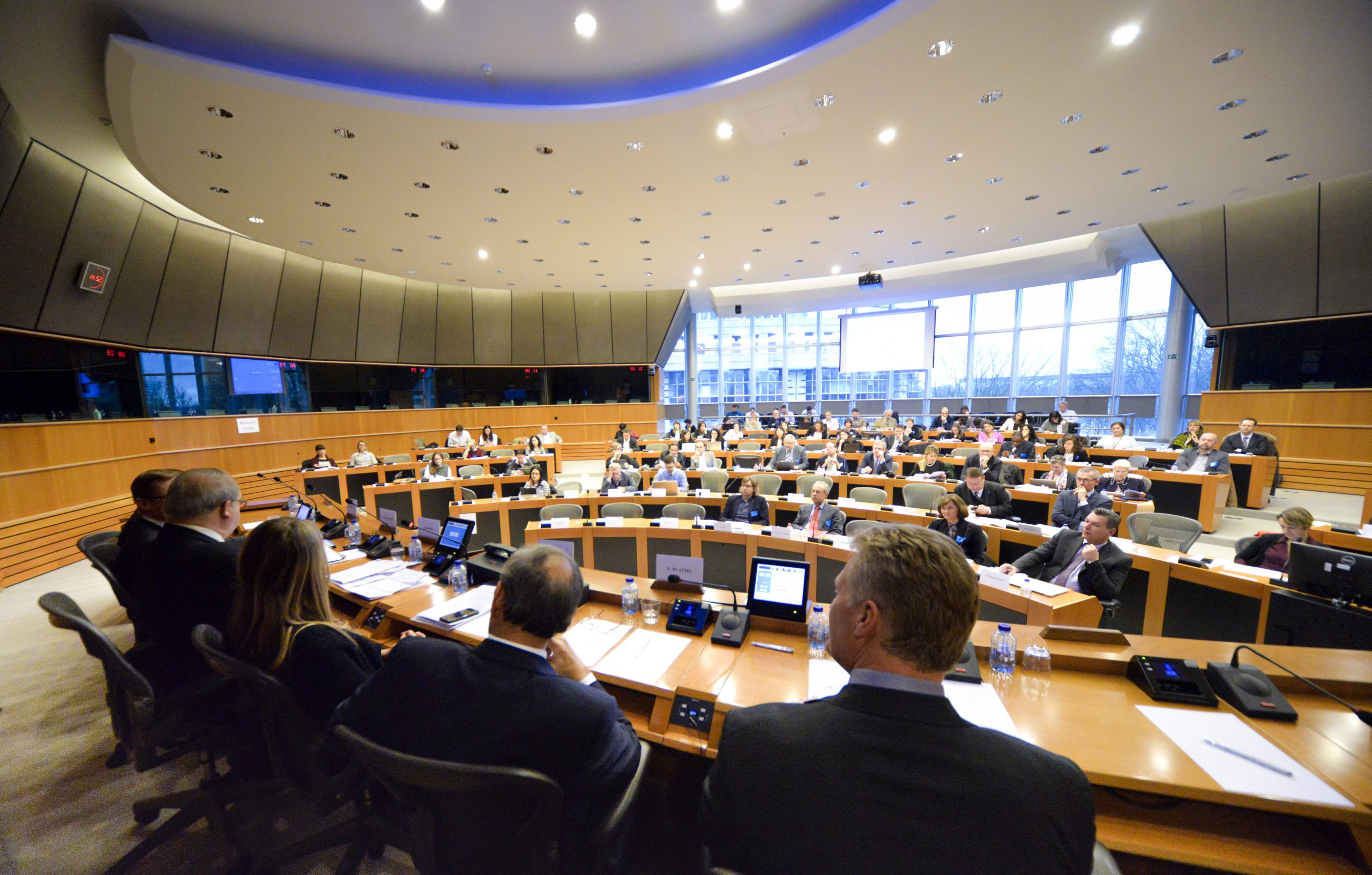Written by Nera Kuljanic and Liliana Cunha,

Would you like to be connected with your doctor online? Would you feel more empowered to take care of your health in a system with a medical professional on standby just a couple of clicks away? Notwithstanding many obstacles and challenges that exist, developments and trends in ICT have paved the way for healthcare to move inexorably in this direction.
The state-of-play of eHealth and the outlook for the future were discussed during a workshop in the European Parliament on 1 December 2015 in Brussels. The event was hosted by the EP’s Science and Technology Options Assessment (STOA) Panel and was chaired by STOA’s First Vice-Chair Eva Kaili MEP.
[tweet https://twitter.com/LanM_EHTEL/status/671699947004252160 width=’200′ align=’left’] In her opening address Eva Kaili MEP, First STOA Vice-Chair, said that many EU Member States had been experimenting with new healthcare models, integrating ICT in care delivery in an effort to achieve better coordination of services across the continuum of care. Since 2004 the European Commission has been developing EU-wide guidelines for eHealth and many pilot projects have been implemented over the years. In Greece, for example, a telemedicine network within the national healthcare system facilitates access to healthcare service by the population of Greek islands. Lambis Platsis explained that, for the moment, the system encompassed teleconsultations between medical professionals (both for day-to-day work, but also in medical emergencies), e-learning for staff in remote areas, and telepsychiatry. In Slovenia there was a small-scale project involving healthcare professionals providing distant support to diabetic patients via mobile phones and mail, based on the inputs by each patient to an online portal. Such a personalised approach was highly appreciated by the patients involved, said Stanislav Pušnik.
Are we ready to deploy eHealth in real life?
[tweet https://twitter.com/nmanaras/status/671711069463830528 width=’200′ align=’right’] The EU Member States differ in terms of broadband internet penetration, number of internet users and citizens’ access to personal computers. What all Member States have in common is a mis-alignment between e-services offered by governments and citizens’ take-up, and between electronic data storage and sharing. In the EU, the majority of medical doctors’ practices are not available online (only in 7 Member States more than 50% of doctors have websites).
Studies and projects on selected populations and services demonstrated telemedicine to be at least as safe and effective as a ‘usual care’. But, on the other hand, questions on the economic viability, transferability of best practices and large-scale deployment of eHealth are yet to be answered. Panos Stafylas presented the work of researchers gathered around the United4Health platform, hoping to offer some solid answers when they present their final results next month.
As critical factors for a successful shift towards eHealth, Wendy Currie and Alexander Hörbst mentioned investments in infrastructure, health and IT literacy, collaboration between stakeholders (also cross-border and across disciplines), interoperability and flexibility of systems, specific and convenient tools. Data security, ownership and privacy, user motivation and inclusion remain among the toughest challenges. Highlighting integration and empowerment, Madis Tiik called for the higher involvement of citizens in shaping eHealth services. Indeed, if their needs and expectations are directly reflected in setting up interventions, they are more likely to end up using the services.
Closing the event, Eva Kaili MEP argued that the meeting had offered the opportunity to discuss the lessons learnt on EU healthcare delivery organisations from different experiences and had identified areas where policy support would be welcome.
[tweet https://twitter.com/StephanSchug/status/671714917519593474 width=’300′ align=’center’]
[tweet https://twitter.com/ehtel_ehealth/status/671728851555385344 width=’300′ align=’center’]




















[…] […]